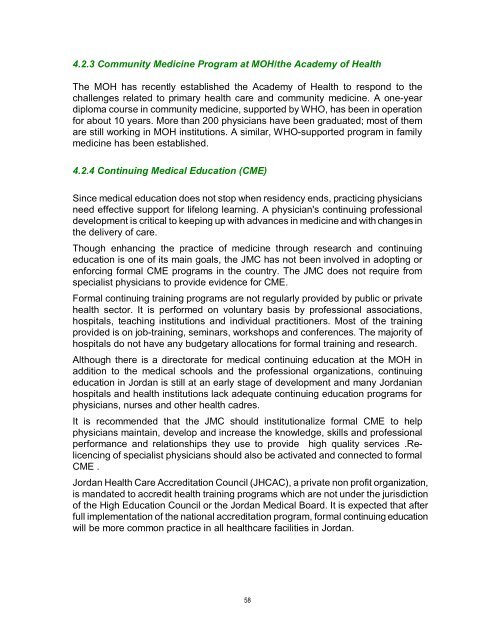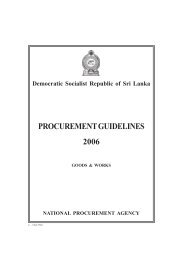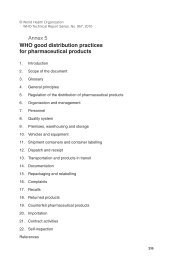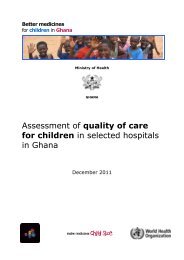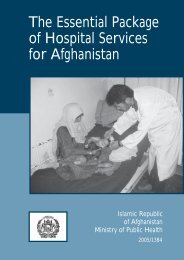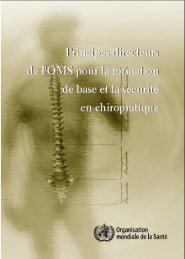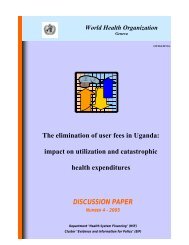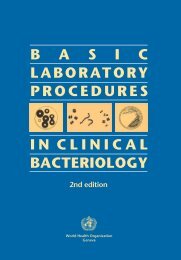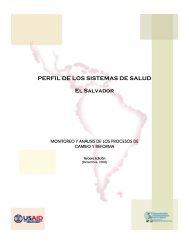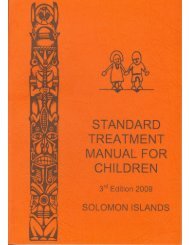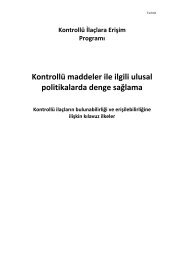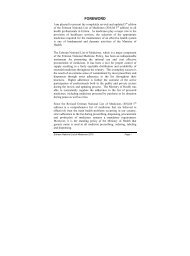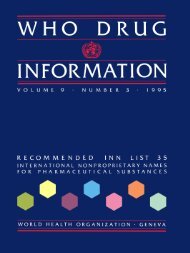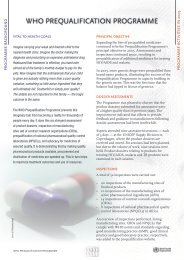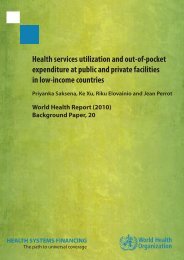Prepared by: Dr. Musa Ajlouni January, 2010 - World Health ...
Prepared by: Dr. Musa Ajlouni January, 2010 - World Health ...
Prepared by: Dr. Musa Ajlouni January, 2010 - World Health ...
Create successful ePaper yourself
Turn your PDF publications into a flip-book with our unique Google optimized e-Paper software.
4.2.3 Community Medicine Program at MOH/the Academy of <strong>Health</strong>The MOH has recently established the Academy of <strong>Health</strong> to respond to thechallenges related to primary health care and community medicine. A one-yeardiploma course in community medicine, supported <strong>by</strong> WHO, has been in operationfor about 10 years. More than 200 physicians have been graduated; most of themare still working in MOH institutions. A similar, WHO-supported program in familymedicine has been established.4.2.4 Continuing Medical Education (CME)Since medical education does not stop when residency ends, practicing physiciansneed effective support for lifelong learning. A physician's continuing professionaldevelopment is critical to keeping up with advances in medicine and with changes inthe delivery of care.Though enhancing the practice of medicine through research and continuingeducation is one of its main goals, the JMC has not been involved in adopting orenforcing formal CME programs in the country. The JMC does not require fromspecialist physicians to provide evidence for CME.Formal continuing training programs are not regularly provided <strong>by</strong> public or privatehealth sector. It is performed on voluntary basis <strong>by</strong> professional associations,hospitals, teaching institutions and individual practitioners. Most of the trainingprovided is on job-training, seminars, workshops and conferences. The majority ofhospitals do not have any budgetary allocations for formal training and research.Although there is a directorate for medical continuing education at the MOH inaddition to the medical schools and the professional organizations, continuingeducation in Jordan is still at an early stage of development and many Jordanianhospitals and health institutions lack adequate continuing education programs forphysicians, nurses and other health cadres.It is recommended that the JMC should institutionalize formal CME to helpphysicians maintain, develop and increase the knowledge, skills and professionalperformance and relationships they use to provide high quality services .Relicencingof specialist physicians should also be activated and connected to formalCME .Jordan <strong>Health</strong> Care Accreditation Council (JHCAC), a private non profit organization,is mandated to accredit health training programs which are not under the jurisdictionof the High Education Council or the Jordan Medical Board. It is expected that afterfull implementation of the national accreditation program, formal continuing educationwill be more common practice in all healthcare facilities in Jordan.58


